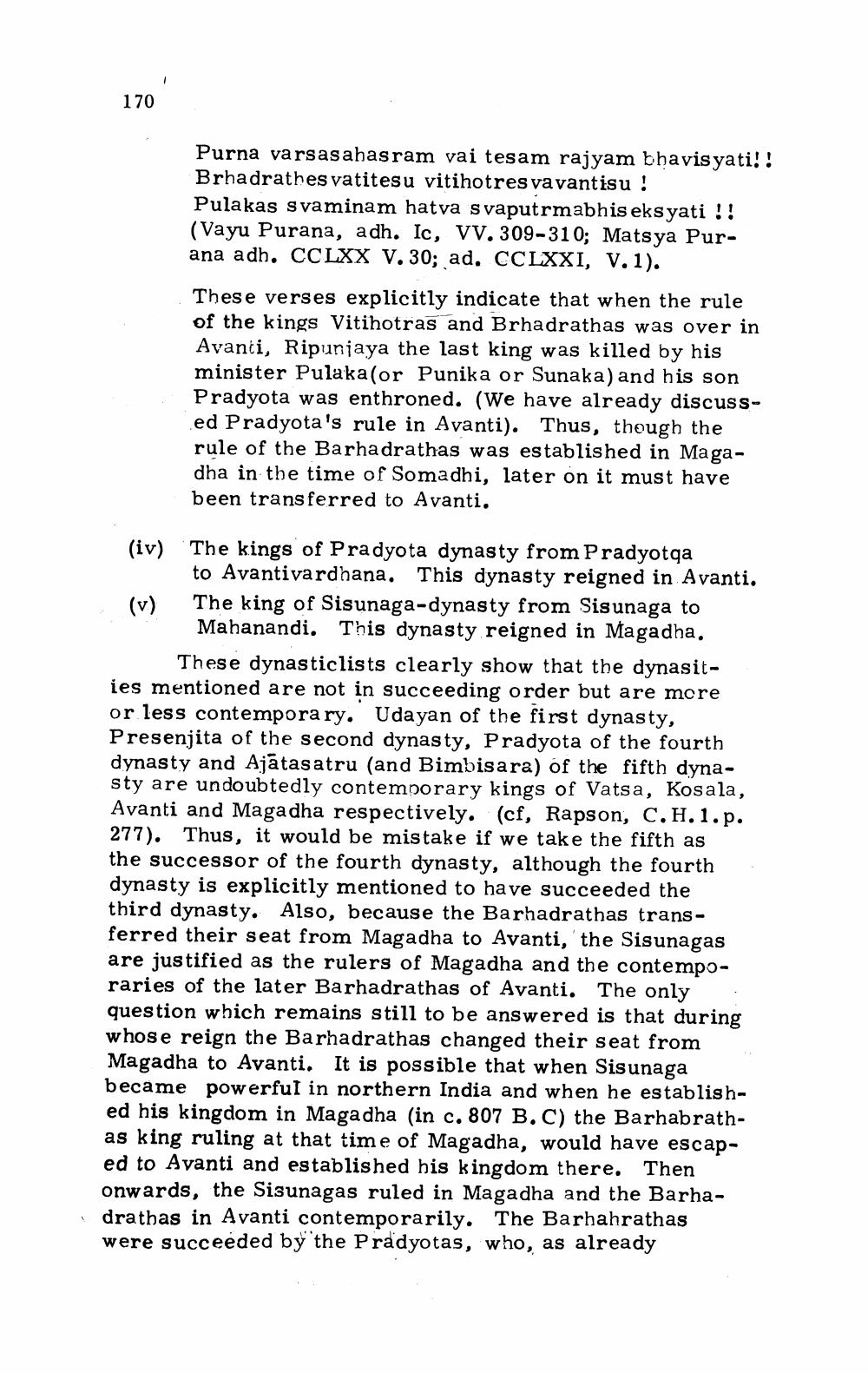________________
170
Purna varsas ahasram vai tesam rajyam bhavisyati!! Brhadrathes vatitesu vitihotres va vantisu!
Pulakas svaminam hatva svaputrmabhiseksyati !! (Vayu Purana, adh. Ic, VV. 309-310; Matsya Purana adh. CCLXX V.30; ad. CCLXXI, V. 1).
These verses explicitly indicate that when the rule of the kings Vitihotras and Brhadrathas was over in Avanti, Ripunjaya the last king was killed by his minister Pulaka (or Punika or Sunaka) and his son Pradyota was enthroned. (We have already discussed Pradyota's rule in Avanti). Thus, though the rule of the Barhadrathas was established in Magadha in the time of Somadhi, later on it must have been transferred to Avanti.
(iv) The kings of Pradyota dynasty from Pradyotqa to Avantivardhana. This dynasty reigned in Avanti. The king of Sisunaga-dynasty from Sisunaga to Mahanandi. This dynasty reigned in Magadha.
(v)
These dynasticlists clearly show that the dynasities mentioned are not in succeeding order but are more or less contemporary. Udayan of the first dynasty, Presenjita of the second dynasty, Pradyota of the fourth dynasty and Ajātas atru (and Bimbisara) of the fifth dynasty are undoubtedly contemporary kings of Vatsa, Kosala, Avanti and Magadha respectively. (cf, Rapson, C. H. 1. p. 277). Thus, it would be mistake if we take the fifth as the successor of the fourth dynasty, although the fourth dynasty is explicitly mentioned to have succeeded the third dynasty. Also, because the Barhadrathas transferred their seat from Magadha to Avanti, the Sisunagas are justified as the rulers of Magadha and the contemporaries of the later Barhadrathas of Avanti. The only question which remains still to be answered is that during whose reign the Barhadrathas changed their seat from Magadha to Avanti. It is possible that when Sisunaga became powerful in northern India and when he established his kingdom in Magadha (in c. 807 B. C) the Barhabrathas king ruling at that time of Magadha, would have escaped to Avanti and established his kingdom there. Then onwards, the Sisunagas ruled in Magadha and the Barhadrathas in Avanti contemporarily. The Barhahrathas were succeeded by the Pradyotas, who, as already




